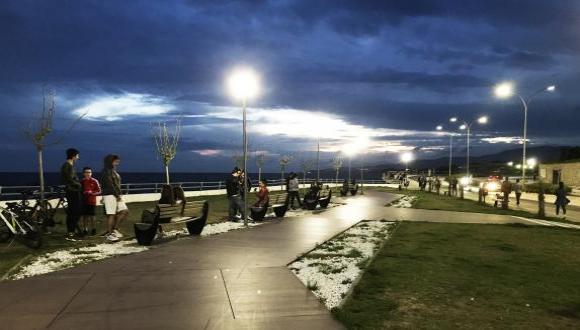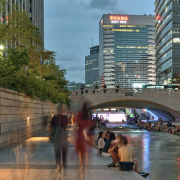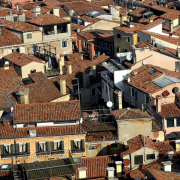Cities & Covid-19 | Alexandroupolis, Greece by Angeliki Anagnostou
Students share their impressions of urban living during a pandemic | a TAU City Center special project
City and city life in the COVID-19 era
On the 17th of March 2020, BBC News announced: “The outbreak of the coronavirus has led to the emptying of public spaces around the world, (…).”
All the media presented an image of cities, to which we are not used. Abandoned streets, mass transportation without masses, closed stores, people at home, silence…the so-called ghost cities.
However, even though the global pandemic begot the same situation everywhere, the image of cities differs worldwide.
We are bombarded with images of metropolitan areas, big famous cities, popular touristic destinations etc. But what about a medium-sized city in Greece?
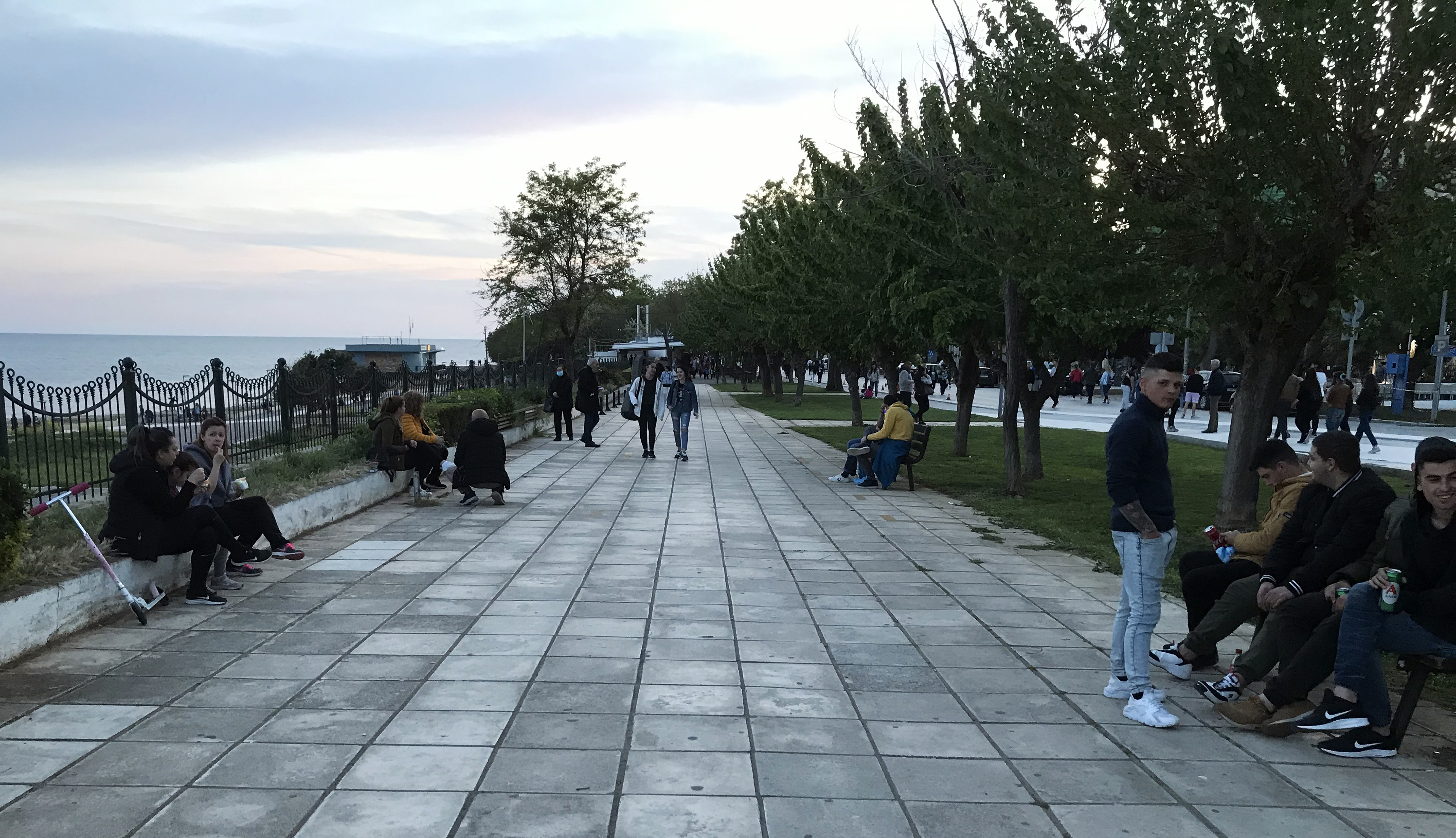 Returning from the Netherlands to Greece, during the beginning of the lockdown,
Returning from the Netherlands to Greece, during the beginning of the lockdown,
I confronted a new Greek reality.
The Greek government took strict measures quite fast and the movement of people was allowed for a prescribed set of essential reasons.
Apart from moving to and from the workplace and shopping for food or medicine, the most common reason for movement was exercising individually, in pairs or walking a pet.
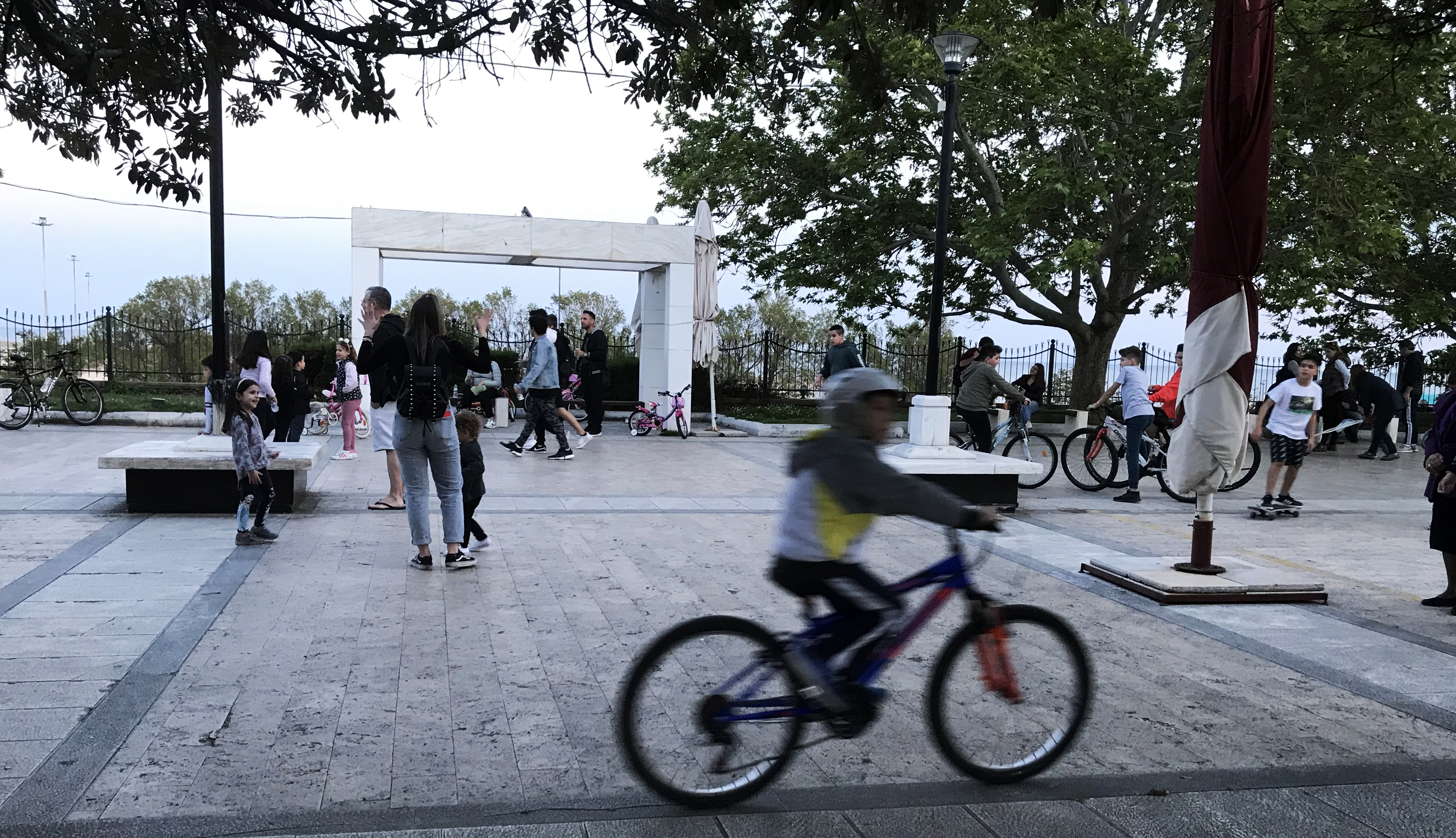
Although the quarantine affected many aspects of our lives, it was pleasant to see my hometown (Alexandroupolis, Greece) more liveable than ever. 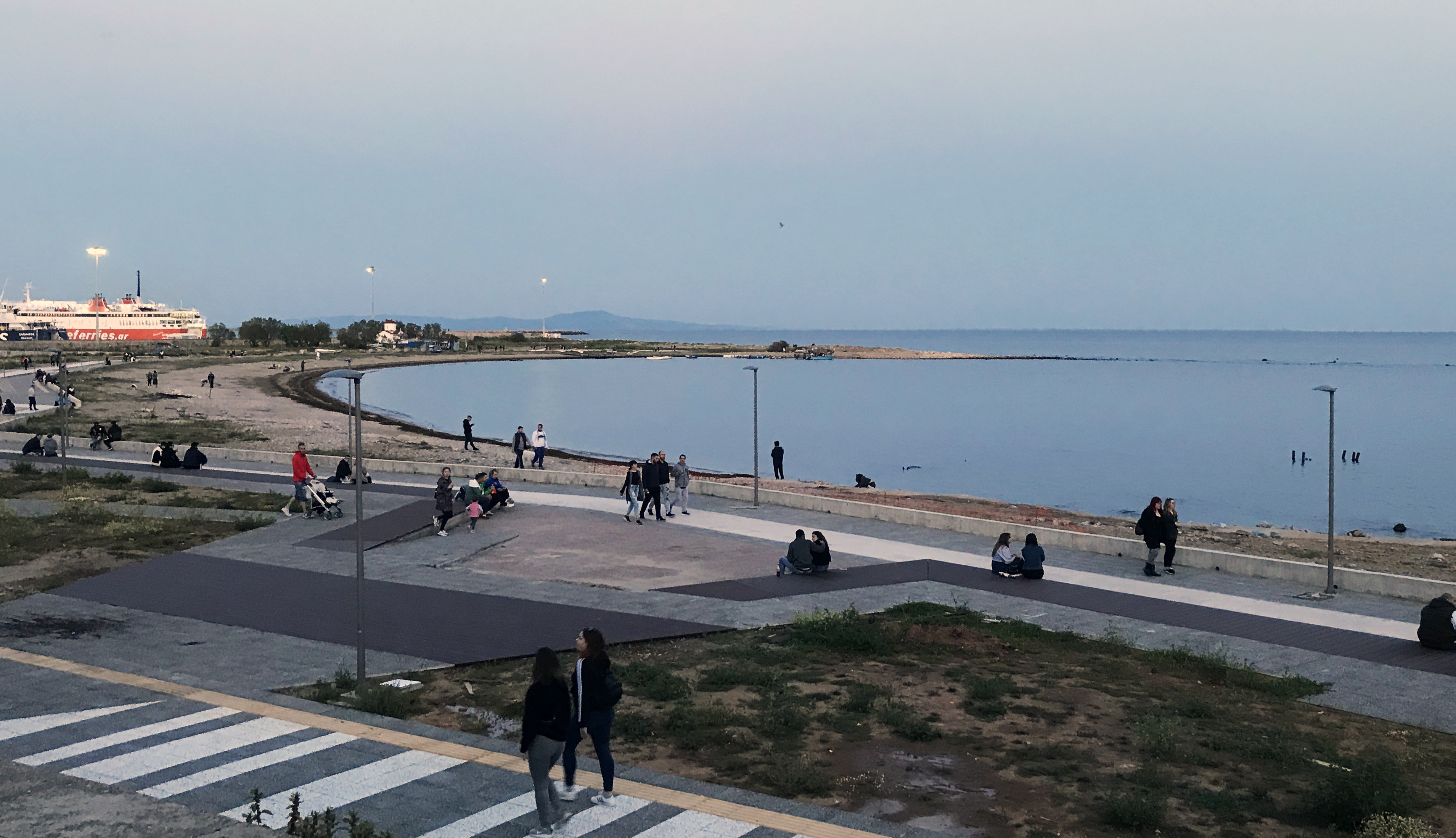
Every area was full of people, residents were walking even in not well-known places.
It was almost impossible to find an empty bench. Pedestrians and cyclists were much more than cars.
The sidewalks were free for walk without the numerous coffee tables, blocking the accessibility. The Greek coffee drinking culture was not disappeared though.
Many small cafes offered the “take away” option and Greek people enjoyed their coffee in public space socializing with others but always from distance.
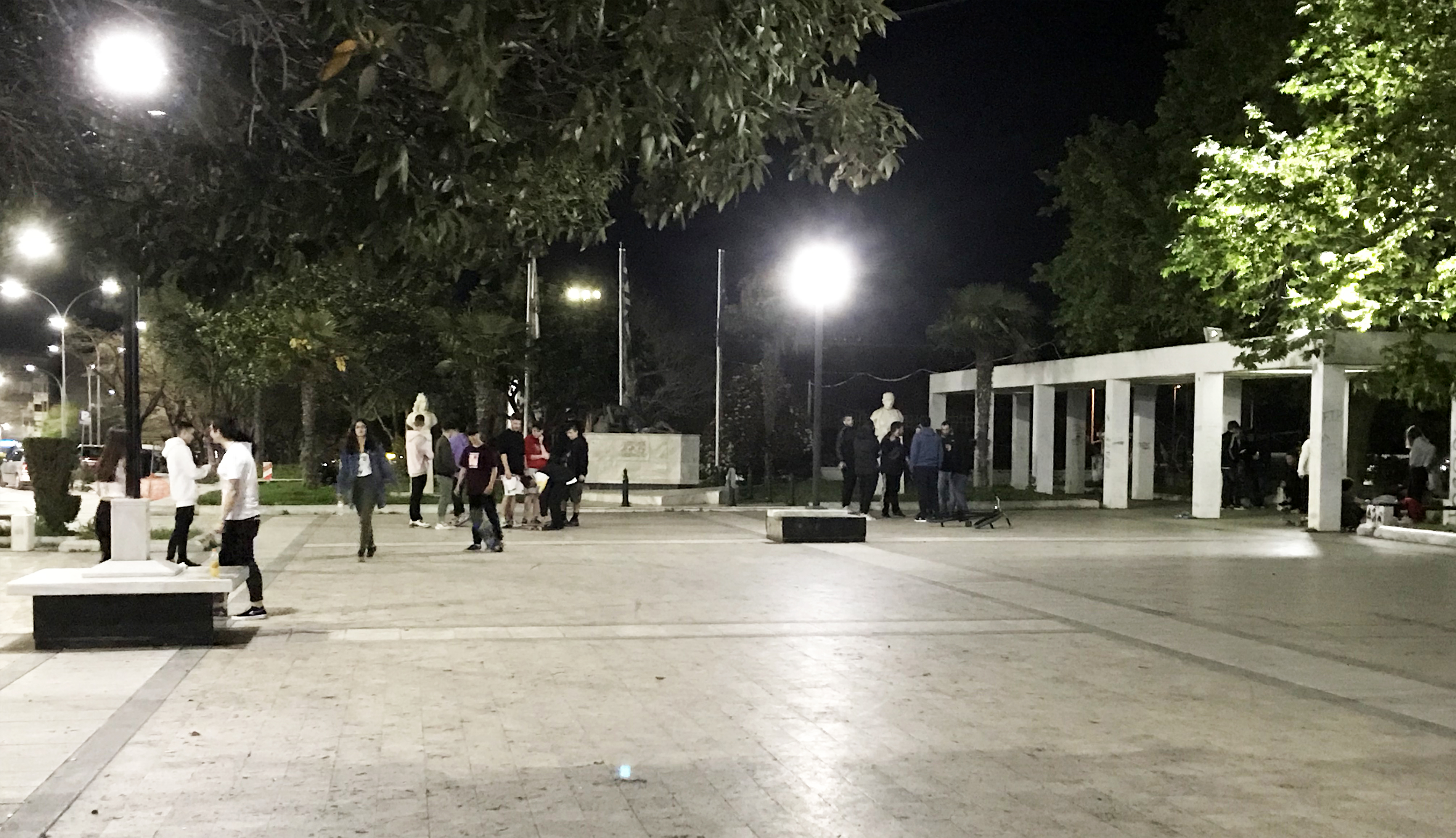
Despite the readjustment on the proxemics, it seems that COVID-19 made people more social in public space. They stop more often to greet and discuss, they smile to each other, developing so a new kind of social life, with social distancing to be a must.
It is undeniable that COVID -19 influenced negatively many aspects of our lives and changed the way we live, but everyone can learn something out of it. Specifically, it seems that Greek people reconsidered the meaning and the importance of public space during the pandemic. But what will happen when this acute crisis comes to an end? What will we keep after this?
_________________________________________________
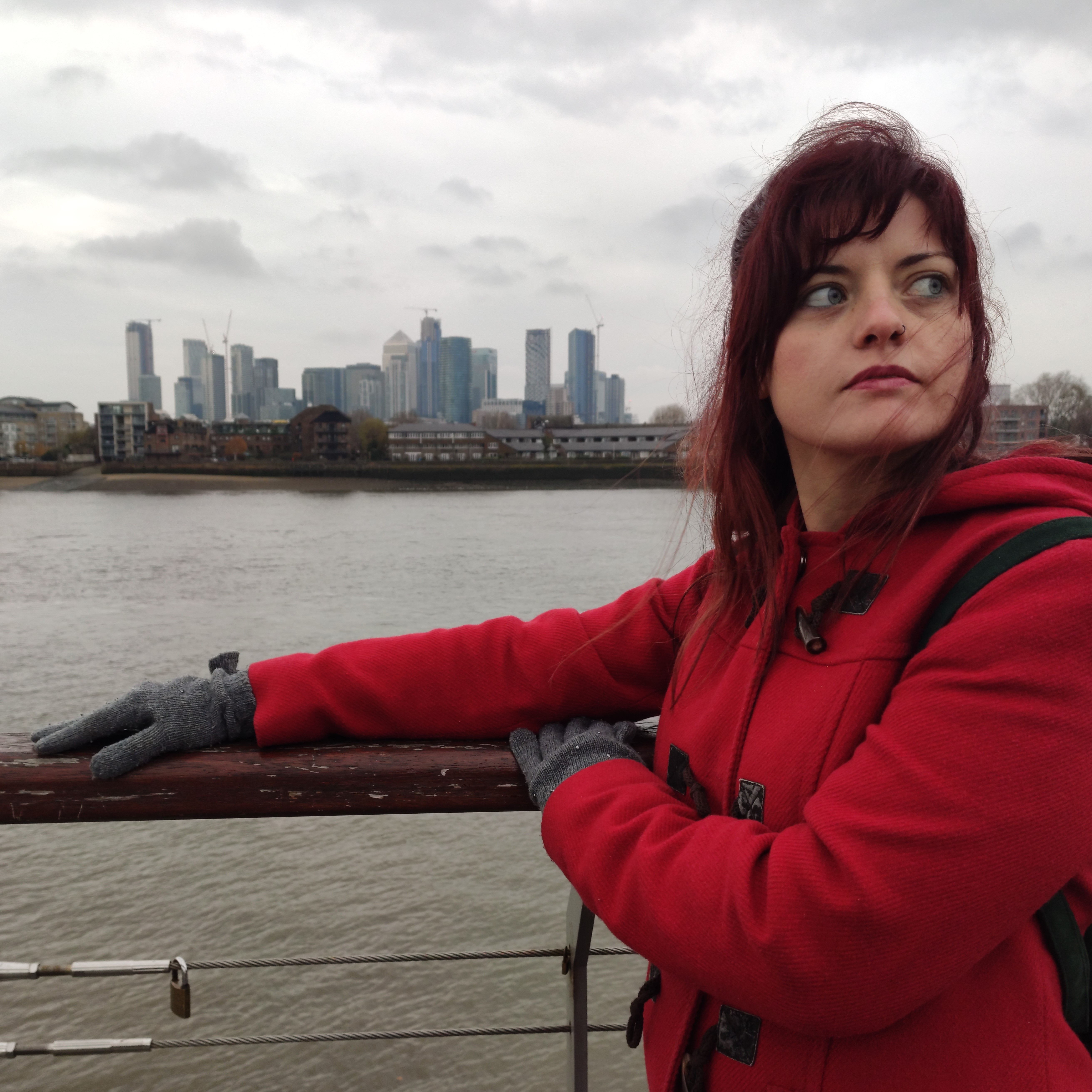
Angeiki Anagnostou is a registered Architect Engineer at the Technical Chamber of Greece and Urban Designer, graduated from TUDelft, living in Haarlem, the Netherlands.
Her diverse educational background and her work experience, both in Greece and the Netherlands has provided her with a wide range of skills in Architecture, Urban and Landscape Design. She has a strong research orientation, which she likes to combine with design in practice. Her research interests concern mainly the meaning and appropriation of public space, emphasizing on the locality, the socio-cultural background of people and generally the behavior of people in the cities.
For her, the methodology and the process to reach a design solution is as important as the final outcome. As a designer, she considers people’s opinions important, as we design for them and her ambition is to make them feel welcome and happy in their cities.
*Text and images by Angeiki Anagnostou.

